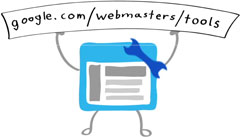Nearly A Year Later, Google’s Penalty Notices Remain Confusing
Nearly a year after Google’s Matt Cutts told us penalty notifications will get clearer, including more actual examples of what a problem is, it seems as if the notifications have gotten harder to understand. I spend a lot of time following penalties issued by Google through examples given to me via email, penalties publicizes on blogs […]
 Nearly a year after Google’s Matt Cutts told us penalty notifications will get clearer, including more actual examples of what a problem is, it seems as if the notifications have gotten harder to understand.
Nearly a year after Google’s Matt Cutts told us penalty notifications will get clearer, including more actual examples of what a problem is, it seems as if the notifications have gotten harder to understand.
I spend a lot of time following penalties issued by Google through examples given to me via email, penalties publicizes on blogs and then examples posted in the Google webmaster forums, where people are confused. And in the past week, two good examples of experienced people and companies being confused have come up.
Experienced SEO Company Confused Over Penalty
Last week, an experienced SEO company named Portent was confused over a penalty notification they received over unnatural links. The notification read like most the notifications I see:
Google has detected a pattern of artificial or unnatural links pointing to your site. Buying links or participating in link schemes in order to manipulate PageRank are violations of Google’s Webmaster Guidelines.
As a result, Google has applied a manual spam action to portent.com/. There may be other actions on your site or parts of your site.
This is what Portent received and this is a very, very common notification seen by most of those who receive a link penalty by Google. And while Google told us that Google will be giving example URLs of links causing the penalties “for the most part,” this didn’t appear to happen for Portent — and I commonly find others saying they lack this guidance, too.
It turns out that the Portent manual action was reversed incredibly quickly, which kind of implies something was wrong with the notification. But this experience SEO company was “amused” by the action, not understanding how they would have received an unnatural link notification. And this is what they do every day.
MyBlogGuest’s Confusing Manual Action:
Last week, you heard of the large penalty Google issued to a large guest blog network where MyBlogGuest publishers seemed to have been penalized.
The confusing part was MyBlogGuest.com itself received a manual action notification in Google Webmaster Tools. The manual action was virtually the same as the others I’ve seen. It read:
Google has detected a pattern of unnatural artificial, deceptive, or manipulative links pointing to pages on this site. These may be the result of buying links that pass PageRank or participating in link schemes.
Why did this confuse Ann Smarty, a long time SEO and the owner of the guest blog service? Well, if the guest blog network itself was penalized, why didn’t the penalty say that. Why is the penalty notification about having unnatural links to the myblogguest.com domain versus the myblogguest.com domain being the cause of the unnatural links?
In short, why does it seem that MyBlogGuest was hit by a manual action for links versus being part of a linking scheme itself?
Google Sheds Some Light
Some are finding this confusing, a sign that Google’s perhaps mixed up in the signals it’s sending. While Google wouldn’t comment about MyBlogGuest specifically, it did say that one reasonable explanation anyone running a network might consider, if hit with a penalty for links pointing to their own site, is that as part of investigating the network or service, bad inbound links might also have been found.
So while Google seems to have not issued a warning to the network for being the source of the penalty, it may have issued a notification that the network itself is linking back to itself and thus has unnatural links pointing to the site.
Either way, you can see why these notifications get confusing, while they should have been getting easier to understand.
Here is a video from Matt Cutts about a year ago about making these notifications easier to understand:
Related stories
New on Search Engine Land